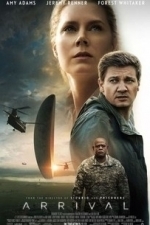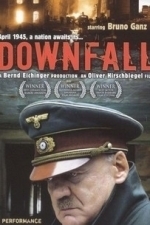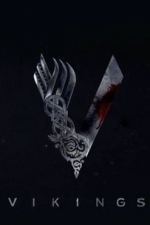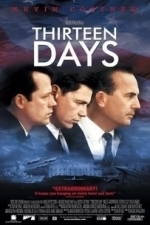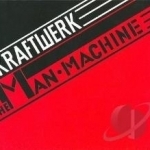
Taichi Panda 3: Dragon Hunter
Games
App
Before the world was populated with taichi masters, there existed two dragons borne from the sun and...
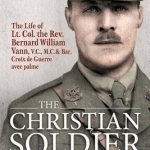
The Christian Soldier: The Life of Lt. Col. Bernard William Vann, V.C., M.C. and Bar, Croix De Guerre Avec Palmes
Book
Lieutenant Colonel the Rev Bernard William Vann, VC, MC & Bar, Croix de Guerre avec palme, was one...
Movie Metropolis (309 KP) rated Arrival (2016) in Movies
Jun 11, 2019
What with last year’s The Martian, the rebirth of Star Wars and the upcoming Passengers, sci-fi is really getting its mojo back. The subject of this review, Arrival, has been hailed as a masterpiece across the Atlantic. But is it worthy of such a strong adjective?
From the director of Prisoners and Sicario; Arrival is not only one of the best sci-fi films of the last year, it’s up there with the genre’s greatest assets. We’re talking a Close Encounters level of good.
Linguistics professor Louise Banks (Amy Adams) leads an elite team of investigators when humongous spaceships touch down in 12 locations around the world. As nations teeter on the verge of global war, Banks and her crew must race against time to find a way to communicate with the extra-terrestrial visitors. Hoping to unravel the mystery, she takes a chance that could threaten her life and quite possibly all of mankind.
Amy Adams leads a pleasing cast that includes commanding turns from Forest Whitaker and Jeremy Renner but it is in our female protagonist that we find the most joy. Adams is fast becoming one of Hollywood’s best actresses and her complex character is superbly written and incredibly well acted.
Elsewhere, the cinematography is truly exceptional with the alien craft taking a backseat to sweeping landscapes from across the world. The focal point of the film, a lush and open Montana valley is filmed to a breath-taking standard especially during Arrival’s opening sequences.
When it comes to special effects, director Denis Villeneuve doesn’t bombard the audience with constant CGI, instead opting for a laidback approach. Even the aliens themselves are understated in their appearance. It’s also fair to say that the film is a slow-burner with very little in the way of action – though it manages to stay well-clear of becoming tedious.
In spite of all this though, Arrival’s greatest strength is its story. This is thinking person’s sci-fi that somehow manages to cement its themes with an emotional heft of gravitational proportions. Throughout the 114 minute running time, we’re constantly reminded of our characters and where it is they come from, something missing from the majority of mass-market blockbusters these days.
Overall, Arrival is more than worthy of an adjective like masterpiece. From it’s incredible story and beautiful cinematography to what is Amy Adams’ best performance to date, it’s a new classic for the sci-fi genre and well worth a watch.
https://moviemetropolis.net/2016/11/11/thrilling-from-start-to-finish-arrival-review/
RəX Regent (349 KP) rated Downfall (Der Untergang) (2004) in Movies
Feb 19, 2019
Told in a straight forward manner, we are given a portrait of not only Adolf Hitler himself, played perfectly by Bruno Ganz, who manages to humanize him without ever apologising for his heinous acts, but also those close to him. Shown through the young eyes of his final secretary, Traudl Junge (Alexandra Maria Lara), we are given a picture of what The Third Reich was to those who believed in it as well as what it had become for those who would suffer at it bloody hands.
Directed by Hirschbiegel to put us, the audience in the anterooms with these monsters, we are placed into a complex environment, edgy, atmospheric and most of all, real, as we witness noble acts of patriotism, conscience and pure, despicable horror, none less so that Magda Geobells, with the full consent of her husband, Joseph, first drugging, then murdering their six children as they slept, rather than “let them live in a world without national socialism.”
The only redeeming factors were their eventual suicides and in terms of the film, their first rate performances throughout this harrowing scene. Corinna Harfouch, who portrays Magda manages to portray this evil woman yet convey the emotion which was subdued deep beneath the surface. No small feat to allow such a fleeting glimpse of humanity during such and inhuman act.
But the same must be said Bruno Ganz, who manages to portray Hitler with such humanity; whilst showing us the true nature of his monstrosities, highlighting that the REAL monsters live among us and can seduce us at any time, any where, especially when we are vulnerable.
During one of the film’s early scenes, Hitler and Albert Speer (Heino Ferch), his Armaments Minister, discussing his vision for The Third Reich as he looks over a model of the new Germany which would be built after he won the war, a Germany without department stores, instead focusing on art, literature and culture.
Surely a noble goal, but as we all know, this cultural hub would have been built at an unacceptable cost, mainly with the blood of those who Hitler and his cohorts deemed to be inferior.
This is one of many clever methods used to convey a fair portrait of Hitler and The Third Reich. To demonstrate how bad they were, you first have to show impartiality, pointing out the good in what they do, play devil’s advocate as it were. Because whether we like it or not, evil motives are often built upon decent goals.
But as this film demonstrates, as Hitler shows his destine for anyone, even his own people, who will not give their lives for HIS vision of Germany, his Third Reich was being eaten away by a cancer of his own making, a Germany rotting from the very top.
Downfall is without a doubt one of the best World War 2 films which I have ever seen, delivering a compelling and immersive look behind the scenes of one of the most important defeats in modern history.
But being British and having to follow this with subtitles, which was great as watching this in its native German only adds to the experience, it can be a bit difficult to keep up with every plot machination, as we spend two and half hours reading about troop deployments, tactics and the philosophy of the Third Reich as we are presented with such atmospheric work, but if you can keep up with but the text and visuals, this is one hell of an education for those who do not know and an immersive masterpiece for those who follow WW2 history.
Connor Sheffield (293 KP) rated Vikings - Season 1 in TV
May 15, 2017
Many shows these days such as Game Of Thrones and Vikings, etc. are becoming more daring with reaching a specific audience rather than the wider audience gained through less graphically violent shows. These shows are not afraid to show us a blade slicing through someones flesh or the blood pouring out of the wounds.
Vikings, as known throughout history, have been recorded as violent and brutish warriors who slaughtered hundreds of men and women during their travels to England and other European lands. The show does not hold back when it comes to portraying their brutality in battle. It is not all brutality and war though, as the drama aspect of this show, is shown through the main cast in their homeland of Scandinavia.
Ragnar is definitely a great character to follow as we watch him rise to become Jarl of his home town. Portrayed by Travis Fimmel (Warcraft: The Beginning / The Baytown Outlaws), the character of Ragnar Lothbrok is one we see develop in many different ways. Based upon the legend of a man of the same name, who, though recorded throughout history, is a character that some historians are unsure existed, thought his sons are definitely recorded to have existed. The only way I can explain this is that his legend is so incredible that there are some who chose to believe it and others who chose to believe it is simply stories made up by travelers and poets.
Either way, this show is a brilliant fantasy drama that combines fiction with historical accuracy. This first season follows Ragnar as he begins his journey to defy the Jarl of Kattegat and sail towards England to raid, pillage and bring back treasure unlike anything the north had ever seen.
The soundtrack to the series is also brilliant and really brings the scenes of the films to life, and give them a beautiful atmosphere that sucks you into the moment, and leaves you on the edge of your seat.
With a great cast, excellent writers and great directing and cinematography, Vikings is beautiful, thrilling and horrifying and certainly, in my opinion, one of the greatest shows I have ever watched.
Darren (1599 KP) rated Thirteen Days (2000) in Movies
Aug 26, 2019
Story: Thirteen Days starts like a normal day in the Kennedy administration, his assistant Kenny O’Donnell (Costner) joins the President John F Kennedy (Greenwood), his brother Robert F Kennedy (Culp) and advisers from every side for an emergency meeting.
The meeting is called to discuss the appearance of nuclear warheads in Cuba, believing Russia are moving to a closer position which could destroy large parts of America in minutes. What follows in Kenny trying to help JFK make the smartest decision, despite how many different people are advising with multiply options, all leading to one of the most intense stand offs in military history.
Thoughts on Thirteen Days
Characters – Kenny O’Donnell is the assistant advisor to the President, he gives him advice which would see him make decisions which would support the image of the President and the country instead of agree with the fast track answers which would see America go to war, he is the man that people turn to if they are not prepared to challenge the President’s decisions. President John F Kennedy is the man in the middle of the situation, the man that needs to make the final decision after taking on all the advice from his experts, he wants to remain in control of the situation to the best of his ability. Robert F Kennedy is one of the men advising his brother, he knows how John thinks and knows how the help him make the right decisions to remain calm and in control. We do have plenty of different advisors who are trying to offer a plan to what could make this stand off end quicker.
Performances – Kevin Costner is always entertaining to watch in a political movie, this is no different as he plays the pivot to everything going on. Bruce Greenwood as the President is great to watch through the film, with the whole cast looking like they would have been the people they are playing.
Story – The story here follows the events around the Cuba Mission Crisis, from the point of view of the Americans. This does break down to be a political thriller that does keep us on edge as we see all the potential ideas that were thrown out which could have seen the world in a different place if different outcomes had been used, while this is a 2 hour story, we only focus on the different ideas, which is interesting to see. Each person could have their own agenda which could show the mindset of the public during the events. We could have more intense moments, but it just doesn’t really do that much more, which doesn’t display just how dangerous the event could have been.
History – This is a big historical moment and it does show how the people in power were put on panic station when the events started to unfold.
Settings – The film uses the political settings for the most part, which does show us just how the people stayed together through the events of the crisis.
Scene of the Movie – Putting the Admiral in his place.
That Moment That Annoyed Me – We could have had more intense sequences.
Final Thoughts – This is an interesting look at one of the biggest stand offs in modern history, we do see how it could have gone very differently and how everything unfolded.
Overall: Interesting look at history.

Battle Copters
Games and Entertainment
App
Compete in the most ACTION PACKED multiplayer airborne battles, with easy controls and AWESOME...
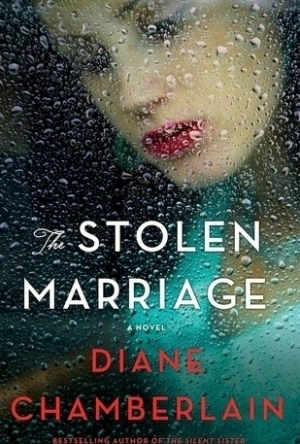
The Stolen Marriage
Book
The Stolen Marriage is a compelling novel from Diane Chamberlain, the bestselling author of The...
Adam Ant recommended Man-Machine by Kraftwerk in Music (curated)
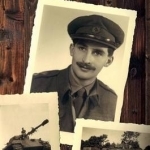
Short Story Collection
Book
My life story...where's the interest in that, I thought, until I started to put pen to paper...then...
